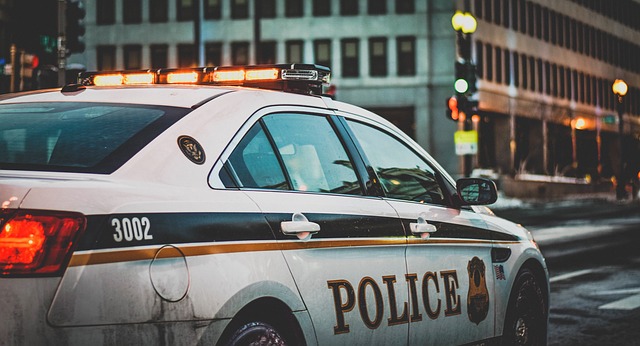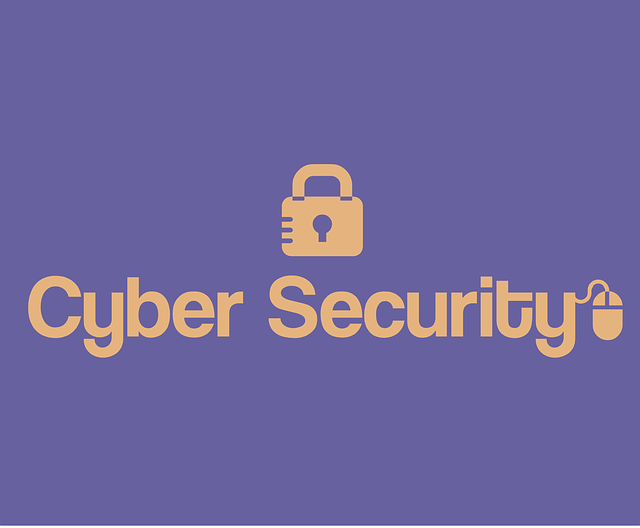
Agricultural workers are at a serious risk of injury or death when installing, climbing into, fumigating, entering, filling or emptying a silo. Because of the nature of the conditions present, workers may be exposed to hazards such as a lack of oxygen, toxic gases and grain entrapment.
To reduce worker risk of injury, properly train workers and remind them frequently of the following safety recommendations:
- Avoid entering a silo unless it is absolutely necessary.
- Complete tasks outside of the silo whenever possible.
- Have a coworker close by in case of an emergency.
- Never smoke or cause sparks near a silo, especially if the air humidity is low.
- Wear respiratory protection when appropriate.
- Stand at a safe distance when filling or emptying a silo.
- Use an approved fall restraint system and harness when climbing a silo.
- Ventilate a fumigating silo before entering.
- Conduct regular safety inspections of silos.
For more farm and ranch safety tips, contact Scurich Insurance today.
Read more

Each year, thousands of businesses, schools and other establishments are mailed suspicious items (e.g., unmarked packages) or are the target of bomb threats. These threats can be made via phone calls, letters, social media channels, emails or other similar means.
Bomb threats and suspicious items are often used to cause alarm, panic, disruption or, in extreme cases, direct harm. However these threats are made, organizations of all kinds need to take them seriously and know how to respond appropriately.
What to Do If You Receive a Bomb Threat
Businesses often wrongly assume they aren’t at risk of a bomb threat. However, the truth is that no organization is 100 percent safe from malicious attacks or threats, making proper preparation all the more important. In the event that your organization receives a bomb threat – whether it be over the phone, via email or another means – follow these procedures.
Threats Made Over the Phone
- Remain calm. Keep the caller on the line for as long as possible, and don’t hang up even if the caller does.
- Signal or pass a note to another staff member, instructing them to notify the authorities. If this isn’t possible, call 911 from another phone after the caller hangs up.
- Document as much information about the call as possible. Details related to a caller ID number, the wording of the threat, the time of the call, background noises on the caller’s end, and the tone and inflection of the caller can all aid investigators. If possible, ask questions to infer specific details about the threat itself, including:
- Who is making the threat and where they are calling from
- The type of device and when it might go off
- What the device looks like
- Where the device is located
- Who the target is
- Record the call if possible.
- Be available for interviews.
- Follow any instructions from facility supervisors and local authorities. These individuals will also provide specific guidance related to facility lockdowns, searches or evacuations.
Threats Made Via Email, Online Platforms, the Mail or Other Source
- Call 911.
- Preserve the threat. If the threat is made online, take a screenshot. If the threat is made through the mail, store it in a safe place and handle it as minimally as possible.
- Note where the threat was found, who found it and when they found it.
- Wait for further instructions from the proper authorities.
In the event of a threat, staff members should avoid using two-way radios, cellular phones or any other electronics, as signals from these devices could potentially detonate a bomb. In addition, you should avoid activating alarms or evacuating the building until the proper authorities evaluate the threat. Law enforcement officials will direct the evacuation if one is necessary.
What to Do If You Find or Receive a Suspicious Item
In general, a suspicious item is any item – like a bag or package – that is believed to contain explosives, improvised explosive devices or hazardous materials. When it comes to identifying these items, you should watch out for unexplainable or unusual wires, electronics, sounds, vapors, mists or odors.
It is not uncommon for establishments to find or receive suspicious items and, while they may end up being harmless, it’s good practice to be overly cautious. As a good rule of thumb, any item that is Hidden, Obviously suspicious and not Typical (HOT) should be deemed suspicious.
In the event that your organization finds or receives a suspicious item, you should:
- Remain calm.
- Avoid touching, tampering or moving the item.
- Notify the proper authorities and your facility supervisor. Follow any and all of their instructions carefully.
Plan Ahead and Stay Safe
When it comes to bomb threats and suspicious items, every situation is unique. Typically, facility supervisors and law enforcement officials will be in the best position assess the situation, determine if a real risk is present and provide instruction on how to respond.
For even more protection, businesses should review guidance provided by the Department of Homeland Security and the Department of Justice. Doing so can help you better prepare for potential threats. For more workplace safety advice and risk mitigation tips, contact Scurich Insurance today.
Read more

Businesses host parties for a variety of reasons, including the holidays and organizational accomplishments. While these events are fun, team-building opportunities, they can create a number of risks for the hosting company. In fact, in the event that an employee is injured at the party or causes property damage, the employer is usually the one held responsible. This can lead to costly litigation and reputational harm that can affect a company for years.
To avoid major losses, it’s not only important for employers to secure the right insurance coverage for every individual risk, but to also have a thorough understanding of common holiday party exposures.
Alcohol
Anytime you provide alcohol to individuals in a non-commercial manner, you are considered a social host. This is important to note, as a social host may be responsible for the acts of their guests should their conduct create harm. These risks are compounded when alcohol is served, and employers may be liable for damages following a drunken driving accident or similar incident.
While the best way to reduce alcohol liability risks is to avoid serving it altogether, this isn’t always feasible. To promote the safety of your employees and guests at company-sponsored events, consider the following:
- Hold the event off-site at a restaurant or hotel.
- Provide plenty of food and non-alcoholic beverages throughout the night.
- Serve drinks to guests rather than offering a self-serve bar. Limit the amount of alcohol you will serve. Require servers to measure spirits.
- Set up bar stations instead of having servers circulate the room. Place table tents at each bar that remind employees and guests to drink responsibly.
- Don’t price alcohol too low, as it encourages overconsumption. Offer a range of low-alcohol and alcohol-free drinks at no charge.
- Close the bar an hour before the scheduled end of the party. Do not offer a “last call,” as this promotes rapid consumption.
- Entice guests to take advantage of safe transportation options by subsidizing taxis or promoting a designated driver program.
Marijuana Consumption
Similar to alcohol use, marijuana and other drug consumption can directly affect the safety of your party guests. In fact, according to the most recent federal data, 44 percent of vehicle crash deaths can be linked to drug-impaired driving, up from 28 percent a decade earlier.
Marijuana contains hundreds of chemicals, many of which act directly on the body and brain. Individual sensitivity to marijuana can vary, but the general effects include the following:
- Dizziness, drowsiness, light-headedness, fatigue and headaches
- Impaired memory, concentration and ability to make decisions
- Disorientation and confusion
- Suspiciousness, nervousness, anxiety, paranoia and hallucinations
- Impaired motor skills and perception
- Dry mouth, throat irritation and coughing
- Increased heartbeat
These health effects can last long after an employee smoked, increasing the potential for accidents or major health concerns. In addition, federal, state and local laws may prohibit marijuana use in certain areas, making it all the more important to educate employees on behavior expectations.
To keep your party guests safe and avoid any liability concerns, consider making clear rules for marijuana use at your party. Remind employees that even though they are at a social event, they are still attending a work function and workplace policies on the use of marijuana still apply.
Workplace Harassment and Discrimination
Even when holding company-sponsored events off-site, employers are expected to enforce their workplace policies and safeguard their employees. In particular, employers must pay extra care to prevent issues of harassment and discrimination at their events, as they can lead to employment claims and costly litigation.
To help keep employees safe at company parties, employers should ensure all of their policies related to harassment, violence, discrimination and code of conduct are up to date and account for company-sponsored events. Policies should be specific as to what is and is not tolerated, and redistributed them as thoroughly as possible.
In addition, employers should:
- Consider making the event a family party where employees can bring their spouse, significant other, children or a friend. This can help deter inappropriate behavior.
- Keep event themes and decorations appropriate. Parties should be neutral and not make reference to specific religions or beliefs. In addition, plan your party on a day that does not conflict with religious holidays.
- Consider having just one entrance to your party. This will allow you to control who enters the venue and ensure that uninvited guests do not attended.
- Have supervisors and managers chaperone the event, looking closely for inappropriate behavior. Hire third-party security personnel as needed.
- Avoid making attendance for company-sponsored events mandatory.
Food Exposures
Food is a staple of many company-sponsored events, and can actually be a useful way to keep party guest sober and limit alcohol-related liability (starchy foods can help reduce the absorption of alcohol). However, when serving food, there are a number of risks employers should consider.
For instance, employers need to be wary of potential food allergies. In the event that a guest gets sick from the food, they could sue the employer for negligence.
To help protect against this, employers should ask party guests to disclose any of their allergies, either in their RSVP or by contacting the event coordinator directly. In addition, you should specify what ingredients are in every food item, both on the menu and on display cards near the food itself.
For added protection against illnesses, it’s critical that employers promote safe food preparation and handling practices. Moreover, when working with a third-party provider, employers should do their due diligence to ensure they are securing reputable vendors.
Property Damage
Property damage can occur at just about any kind of party, even small, company-sponsored events. As the host, it’s your job to ensure your guests remain safe, behave appropriately and respect the venue and its contents.
To do so, employers should:
- Set behavior expectations before the party.
- Have supervisors and managers chaperone the event, looking closely for inappropriate behavior. Hire third-party security personnel as needed.
- Remove valuable items from the party area wherever possible. Make sure any areas that you don’t want guests to enter are locked, roped off or secured in some way.
- Review your liability insurance and know what it covers.
- Ensure the venue is equipped to handle the number of individuals invited to the party.
Secure the Coverage You Need in Advance
Even if you take all the appropriate precautions, incidents can still occur. As such, it’s important for all organizations to secure adequate insurance.
Each business is different, and may require additional policies to account for all of their exposures. Contact Scurich Insurance today to learn about your coverage options when it comes to hosting a party.
Read more

As with any cooking tool, it’s important to take caution when using a turkey fryer as it can be extremely dangerous. Here are some tips to consider when frying a turkey:
- Stay in the area where you are cooking. Leaving the turkey unattended may cause the fryer to overheat, resulting in a fire.
- Use your turkey fryer on a level surface. Anything that might cause the fryer to tip over may result in a hot oil spill.
- Thaw your turkey before cooking. Water from a still-frozen turkey can cause the oil to bubble or splash over the pot.
- Keep small children and animals away from the fryer while it is in use. There is a great risk that a child or pet could run into the fryer, knocking it down and causing serious injury. A safe distance of three to 10 feet away is recommended.
- Have safety equipment ready. Use oven mitts, goggles and an apron while cooking. Have a fire extinguisher nearby in case of emergency, and keep flammable items away from the fryer.
Your Safety Matters!
For your safety, only use a turkey fryer outside and away from your home. Never use a turkey fryer in a garage or on a porch. Also, be sure to keep some distance between yourself and the fryer as you monitor it—you wouldn’t want to accidentally get splashed with hot oil.
Did You Know?
The U.S. Fire Administration states that Thanksgiving is the peak day for home cooking fires. While preparing your Thanksgiving turkey can be a timeless tradition, it’s important to keep cooking safety measures in mind to protect yourself, your guests and your home.
Read more

On Sept. 28, 2018, Facebook announced that nearly 50 million user accounts were compromised in a data breach. The breach, which can be traced back to July 2017, is one of the largest in the company’s 14-year history.
While investigations are ongoing, the company said hackers exploited a software vulnerability in Facebook’s "View As" feature to steal access tokens and gain control of user accounts. Access tokens are effectively digital keys to specific accounts, and stealing them allows attackers to view private posts or compose status updates without the knowledge of the affected user.
In addition, the attack allowed the hackers to see anything that users can see on their own profile, including the names and birth dates of friends and family members. Such information could be used in future phishing attacks.
In response to the attack, Facebook reset 90 million logins automatically, fixed the software vulnerability and informed law enforcement officials. While the company says that users do not need to change their passwords, individuals experiencing login issues should navigate to Facebook’s Help Center.
As a safety precaution, users are encouraged to log in and out of all of their accounts on every device. Users can see all of the devices they’re currently signed into here.
To learn more about the breach, read Facebook’s official blog post.
Read more

According to a recent study, the average person checks their cellphone 100 times a day. While there is a time and a place for cellphones, using it at the job site can be extremely dangerous.
If you’re distracted for just a second while operating a power tool, working on a roof or driving a forklift, you can injure yourself or a co-worker. You can also face civil or criminal liability for damages you cause by operating a motorized vehicle while using a cellphone.
It isn’t only operators of machinery who need to be mindful of the dangers of cellphone use on the job site. Simply looking down at your cellphone and not paying attention to your surroundings could put your life in danger.
Cellphone Safety Tips When On-site
The Occupational Safety and Health Administration (OSHA) prohibits cellphone use by operators of cranes and similar equipment. Most organizations prohibit any kind of cellphone use on the job site—not just for crane operators. It is your responsibility to know how your company’s rules apply to you and follow them accordingly.
If you struggle with the temptation to check your phone while working on a job site, consider the following safety tips:
- Get in the habit of sending and receiving text messages before or after your shift, or during one of your breaks.
- Remind family and friends that you may not be able to respond to their messages right away. Provide them with your workplace contact information in case of emergencies.
- Turn off push notifications so you’re not distracted by any apps.
- Don’t carry your cellphone on you if the temptation to check it is too much. Instead, leave it in a safe place where it won’t distract you from your job.
- Follow your workplace policy for cellphone use at work and on the job site. Be aware of any cellphone-free zones.
Besides creating enormous safety risks, employees who are texting at work are not doing what they are getting paid to do. For this reason, these workers may be subject to disciplinary action.
If you have questions about ’s workplace cellphone policy, or if you notice inappropriate cellphone use on the job site, don’t hesitate to discuss it with your supervisor or HR.
Read more






